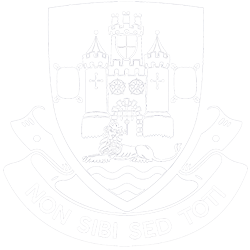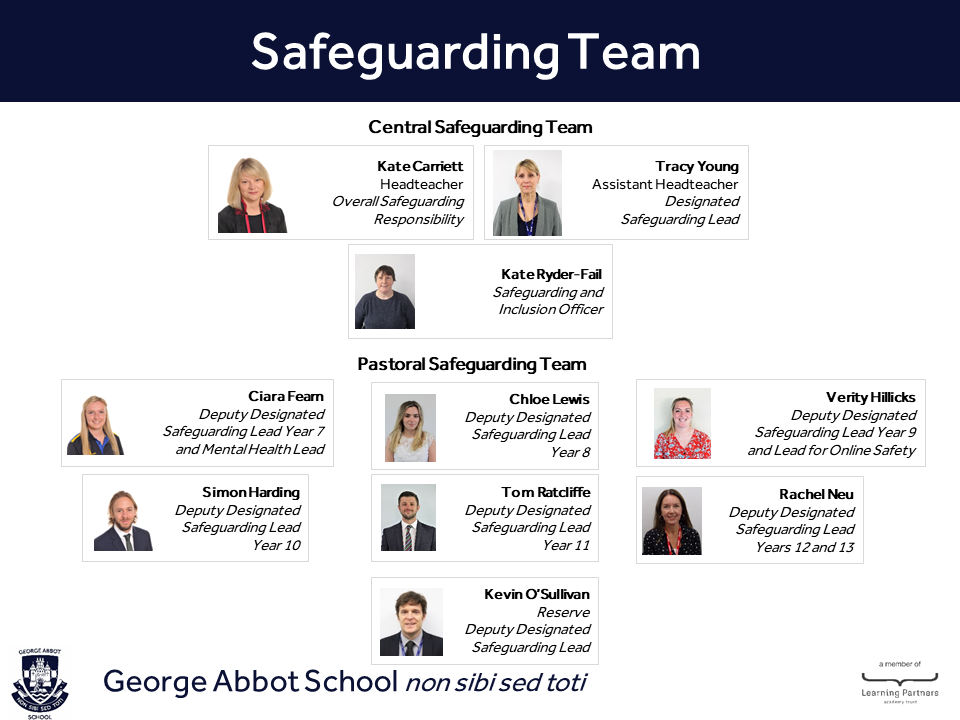George Abbot recognises our moral and statutory responsibility to safeguard and promote the welfare and safety of all students. We maintain an attitude of “it could happen here”; all staff, governors and visitors have a role in the prevention of harm and abuse.
Staff receive annual training in child protection and safeguarding, and are aware of the procedure for passing on welfare concerns within the school.
We make every effort to provide an environment in which children and adults feel safe, secure, valued and respected, and feel confident to talk if they are worried, believing they will be effectively listened to.























